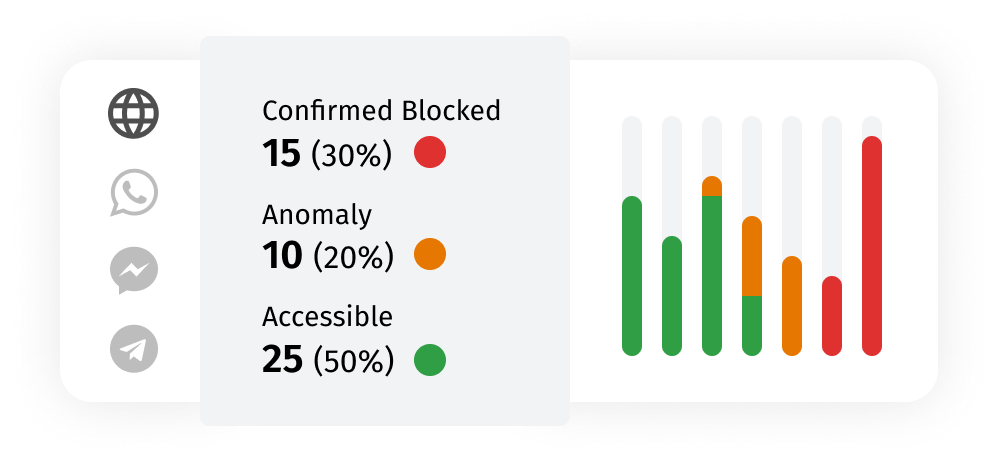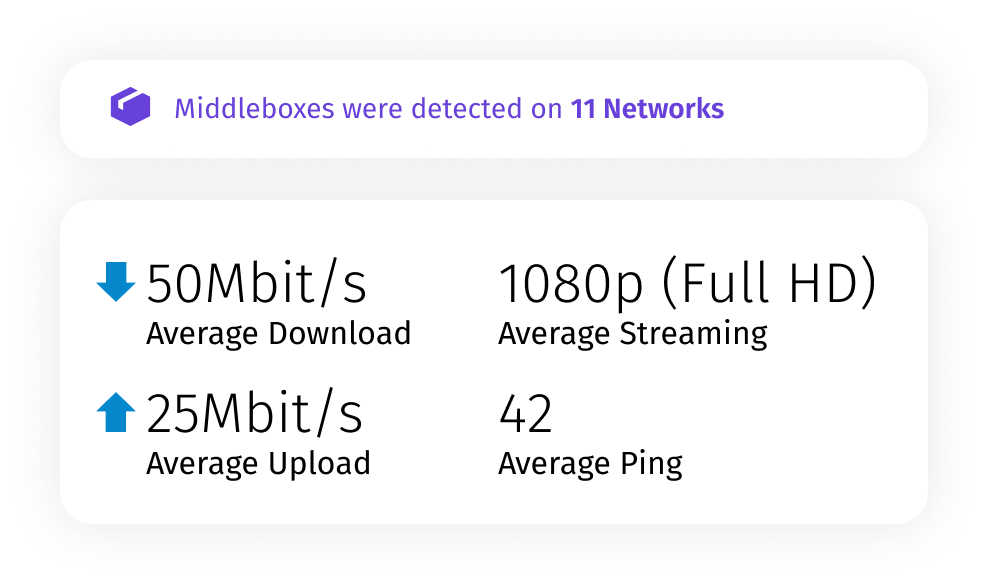Uncover evidence of internet censorship worldwide
Open data collected by the global OONI community
3033.9M
Measurements
242
Countries
29.5k
Networks
OONI Explorer is an open data resource on internet censorship around the world.
Since 2012, millions of network measurements have been collected from more than 200 countries. OONI Explorer sheds light on internet censorship and other forms of network interference worldwide.
To contribute to this open dataset, install OONI Probe and run tests!

Blocking of Websites & Apps
Discover blocked websites around the world. Check whether WhatsApp, Facebook Messenger, and Telegram are blocked.Search
Explore OONI measurements with a powerful search tool. View the most recently blocked websites. Compare internet censorship across networks.

Network Performance
Check the speed and performance of thousands of networks around the world. Explore data on video streaming performance.Monthly coverage worldwide
What can you learn from OONI Explorer?
Below we share some stories from research reports based on OONI data.
We share these case studies to demonstrate how OONI's openly available data can be used and what types of stories can be told.
We encourage you to explore OONI data, discover more censorship cases, and to use OONI data as part of your research and/or advocacy.
Censorship during political events
Internet censorship sometimes occurs in response to or in anticipation of political events, such as elections, protests, and riots. Below we share a few cases detected via OONI data and correlated with political events.
Spain
Catalonia 2017 independence referendum
Blocking of sites related to the referendum
Media censorship
Press freedom is threatened in countries that experience the blocking of media websites. Below we share a few cases detected through OONI data.
Venezuela
Blocking of independent media websites
Venezuela's economic and political crisis
South Sudan
Blocking of foreign-based media
Media accused of hostile reporting against the government
Blocking of LGBTQI sites
Minority group sites are blocked around the world. Below we share a few cases on the blocking of LGBTQI sites.
Censorship changes
OONI measurements have been collected on a continuous basis since 2012, enabling the identification of censorship changes around the world. Some examples include:
Cuba
Cuba used to primarily serve blank block pages, only blocking the HTTP version of websites. Now they censor access to sites that support HTTPS by means of IP blocking.
Venezuela
Venezuelan ISPs used to primarily block sites by means of DNS tampering. Now state-owned CANTV also implements SNI-based filtering.
Ethiopia
Ethiopia used to block numerous news websites, LGBTQI, political opposition, and circumvention tool sites. As part of the 2018 political reforms, most of these sites have been unblocked.
We encourage you to explore OONI measurements to find more highlights!